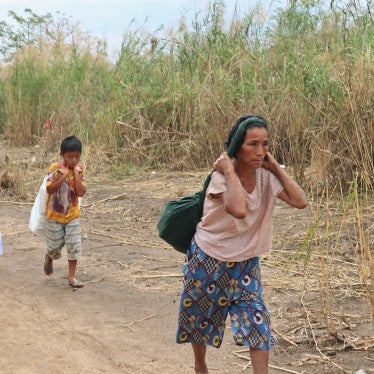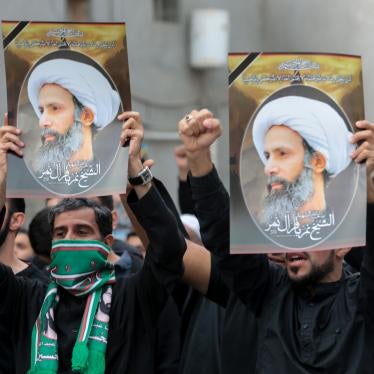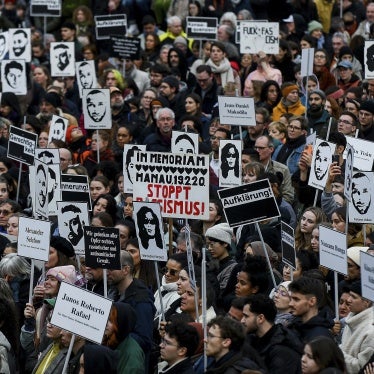By the time he was 16, Maung Zaw Oo had been forcibly recruited into Burma's national army not once, but twice. First recruited at 14, he escaped, only to be recruited again the following year. The corporal who delivered him to a recruitment centre received a cash payment, a sack of rice and a big tin of cooking oil.
"The corporal sold me," Maung Zaw Oo told Human Rights Watch. When his aunt discovered what had happened, she tried to negotiate with a battalion commander for his release. The commander agreed - on condition she bring five new recruits in exchange.
In Burma, children are commodities that are literally bought and sold to fill the army's ranks. The army faces a staffing crisis due to continued expansion, high desertion rates and a lack of willing volunteers. Military recruiters are under incredible pressure to fill quotas, and do so by targeting vulnerable children, some as young as 10.
Recruiters round up boys from marketplaces, train and bus stations, and other public areas. They use coercion, threats and force to enlist children, often telling them that if they refuse to join the military, they face arrest and imprisonment.
Civilian brokers have also discovered that child recruitment can be a lucrative business: recruitment centres offer cash payments and other incentives for each new recruit even if the person is clearly under 18, the legal minimum age for recruitment. During a recent investigation, Human Rights Watch interviewed one boy who was forcibly recruited at the age of 11, despite being only 1.3 metres tall and weighing less than 31kg.
Between July and September, Human Rights Watch researchers interviewed 20 current and former soldiers, including command-level officers, non-commissioned officers and privates. The majority had been recruited as children. All reported that children were present in their training companies, often comprising more than 30 per cent of new recruits.
In frontline groups, the reported presence of children varies from less than 5 per cent to more than 50 per cent of privates in the case of some newly formed battalions.
Children are sometimes deployed into combat within days of their arrival into battalions. They are forced to fight against armed ethnic opposition groups and commit human rights abuses, including burning villages and rounding up civilians for forced labour. Those who try to escape or desert are often brutally beaten, forcibly re-recruited or imprisoned.
In 2002, the UN secretary general informed the Security Council that Burma's army and several non-state armed groups were violating international standards by recruiting children or using them in armed conflict. Since then, the army has been listed as a violator in three reports from the secretary general.
In coming weeks, a Security Council working group on children and armed conflict will meet to consider possible action.
In response to the council's scrutiny, Burma's military government established the Committee for the Prevention of Military Recruitment of Underage Children. In practice, however, the committee functions primarily as a public relations ploy. It denounces outside reports of child recruitment by the regime while taking little effective action to address the issue.
The Security Council has stated that it will consider targeted sanctions, including arms embargoes, in response to the recruitment and use of child soldiers. Given Burma's abysmal record, such sanctions are clearly warranted.
Child soldiers are also present in most of Burma's 30 or more non-state armed groups, including armed opposition forces and government-backed militias. The numbers of children involved are far smaller than in government forces, and the practices vary considerably.
The military crackdown on peaceful protesters in September may place children in Burma at even greater risk of forced recruitment by government forces.
Even before then, Burma's military was deeply unpopular and many young adults rejected military service because of its reputation for low pay, gruelling conditions and mistreatment.
After using its soldiers to attack Buddhist monks, the government may find it even harder to find volunteers. As a result, even larger numbers of children may become recruiters' victims.
The Security Council has committed itself to act on this, and it should impose targeted sanctions on the regime until it ends all recruitment of children and releases all children from its ranks.
Children like Maung Zaw Oo have suffered enough; the least we can do is try to stop more from being victimised.
Jo Becker is the children's rights advocacy director for Human Rights Watch






